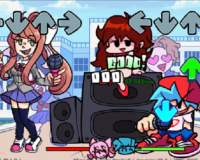
Advertisement
Cantata
Cantata is set in Saleste, an empire that thrives on order and expansion. Its people believe in hierarchy, where every voice must serve a single tone. Within this system live the Iredicci, a group attuned to the cordis, an inner vibration that connects sound and being. Their ability to resonate with others is misunderstood and feared. The empire restricts their speech, forcing them into isolated camps. For the Iredicci, silence becomes survival, while sound becomes rebellion. The player steps into this world as one born under such confinement, where voice and identity are both gifts and risks.
The Event and the Mask
At twelve, the protagonist experiences the Proelium—a coordinated purge aimed at erasing Iredicci presence. Entire settlements are destroyed, and few remain alive. The player’s survival comes through disguise: pretending to be deaf and mute. This act allows entry into imperial society under false pretenses. Years pass in secrecy, and the mask becomes part of the self. What began as defense turns into habit. As adulthood arrives, the story expands into a journey of movement across the empire’s territories. Whether to continue hiding or reclaim one’s nature drives the unfolding narrative.
The Core of Interaction
Cantata uses dialogue and decision to shape experience. The player’s silence is not absence—it is a mechanic that defines relationships and outcomes. Each choice contributes to the tone of your story:
- Select a background and personal name.
- Choose when to speak and when to remain silent.
- Build or break connections with key figures.
- Determine how deeply to engage with the cordis.
- Decide between obedience, neutrality, or resistance.
These decisions influence plot direction and how other characters interpret your existence. In a world built on harmony, even silence creates dissonance.
The Movement Through the Empire
As you travel through Saleste, the empire itself becomes a mirror. Cities and provinces differ in how they perceive the Iredicci. Some hide sympathy, others enforce punishment. The journey reveals systems sustained by fear of the unknown. The protagonist’s internal conflict grows alongside these discoveries—how to live truthfully in a society that forbids authenticity. The narrative builds through recognition rather than combat; understanding replaces conquest.
The story of Cantata concludes not with a single ending but with resolution shaped by tone. Speaking may lead to revolution or exile. Silence may preserve peace or erase identity. The outcome depends on what meaning the player assigns to voice. The empire remains, but it sounds different after your choices—less uniform, more uncertain. The player’s legacy becomes the echo left behind, a reminder that harmony can hide conflict, and silence can still change the world.



















































































